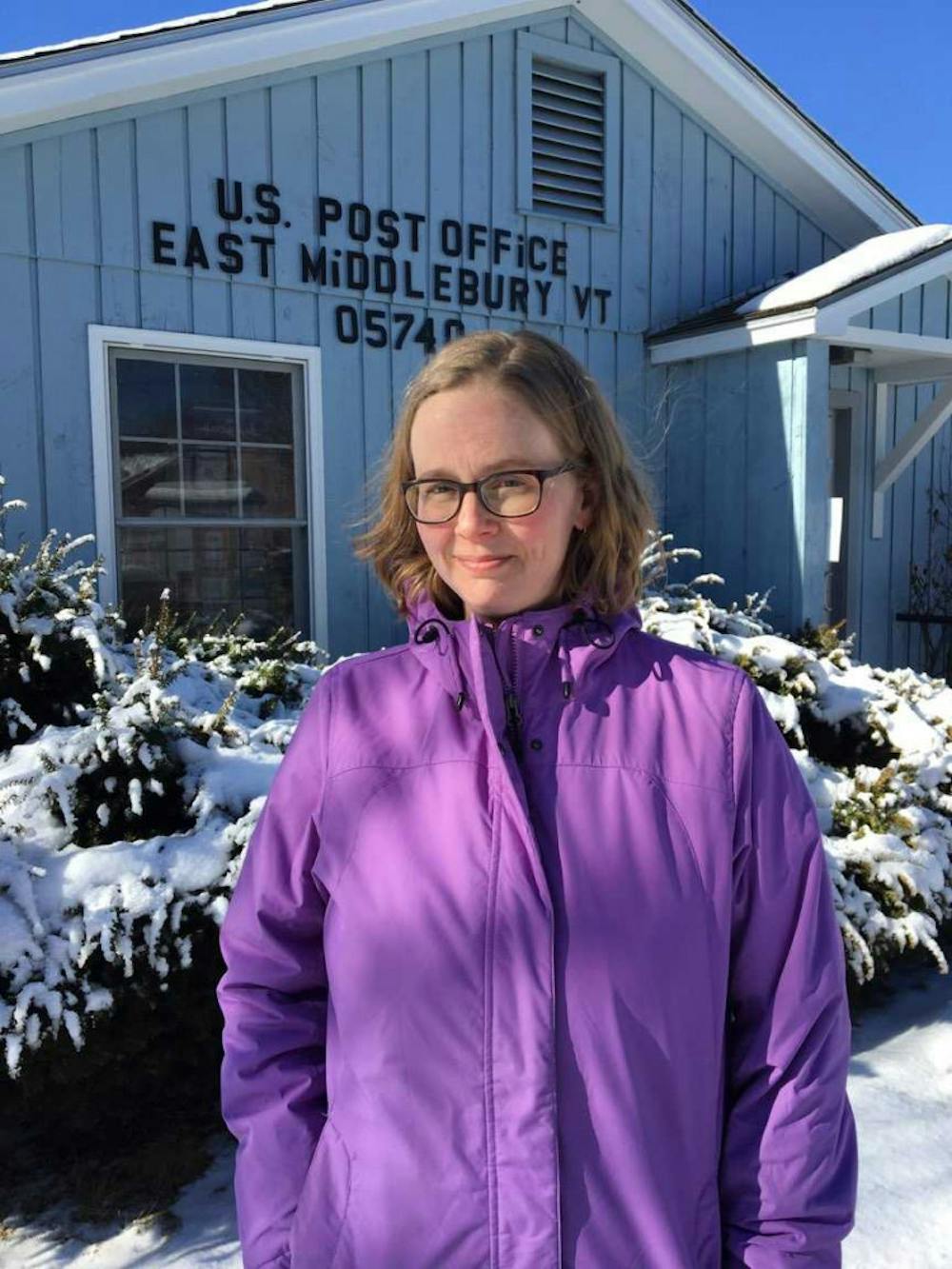MIDDLEBURY — Lindsey Fuentes-George, a Middlebury human services worker, is entering the race for one of two available spots on the town select-board. She is running against two experienced candidates, incumbent Farhad Khan and former selectboard-member Gary Baker.
The Middlebury Selectboard is a governing group of seven members elected for three-year terms on staggered election cycles. Members volunteer to identify and prioritize town issues, while day-to-day management of the town is delegated to the town manager and her professional staff. Together, the town manager’s office and select-board lead the Middlebury community.
The next election will take place on March 6.
In announcing her candidacy in a letter to the Addison Independent, Fuentes-George cited her desire to provide a voice for underrepresented people in the community. Before coming to Middlebury, she worked for an agency that supported survivors of domestic violence. Now, as an employee of the Counseling Service of Addison County, she works with adults with cognitive disabilities. She hopes that her experiences with society’s marginalized will help the select-board become better attuned to the diverse needs of the community.
“I’d like to do so [advocate for residents] while bearing in mind that, for many reasons, residents are not always able to engage equally in this process. I hope to be cognizant of, and accessible to, a wide range of people in the Middlebury community,” she explained to The Campus.
Fuentes-George moved to Middlebury seven years ago with her husband, Kemi Fuentes-George, a political science professor at the college. They have three young children, two of whom attend Mary Hogan Elementary school. Fuentes-George’s desire to run for a board position was shaped by personal experiences with diversity and ties to the local community. In particular, raising multiracial children in a predominantly white area and being brought up by a multi-racial, single mom on welfare, have both contributed to her own lens on Middlebury.
In addition to advocating for a more receptive local government, she discussed the importance of creating a vision for the community which would help guide the policy-making process.
“A lot of people my age and younger are looking for family-friendly communities like Middlebury. Things like open space, amenities (such as Ilsley Public Library and our wonderful recreation department), bike-friendliness, and trail access, are all assets that draw people to our town. Lack of affordable housing, transportation difficulties, and limited internet options all detract.”
Because she has never run for public office before, she recognized some of the challenges she faces. “I am largely unknown compared to the other candidates,” she said.
Her competitors have vast resumes to their names. Baker has served in various public committees over the past decade, from the Planning Commission to the Health and Public Safety Panel. Both Khan and Baker have served on the select-board before.
Despite her lack of policy experience, she offers the promise of a fresh voice on the board, telling The Campus, “I’m hoping that people will be excited about the possibility of someone new.”
As for her thoughts on the construction of the train tunnel—the biggest issue currently facing the town—she is optimistic. Like the other two candidates, she wants to see the project move forward, citing the potential benefits it could bring to the community. While she acknowledged the problems facing downtown businesses, including the closing of Carol’s Café, she described future opportunities stemming from increased land space.
“As much as this project has been a challenge, I think it has the potential to be a huge asset for the town, making the downtown area even more inviting. I think our priority now is to find creative ways to mitigate the impact to our businesses,” she said.
She’s looking forward to the election next week, where she hopes that her priorities of advocating for the concerns of all Middlebury residents will be shared by voters.
“I hope to remain aware, always, of who is not in the room. We are stronger as a community when everyone is heard.”




